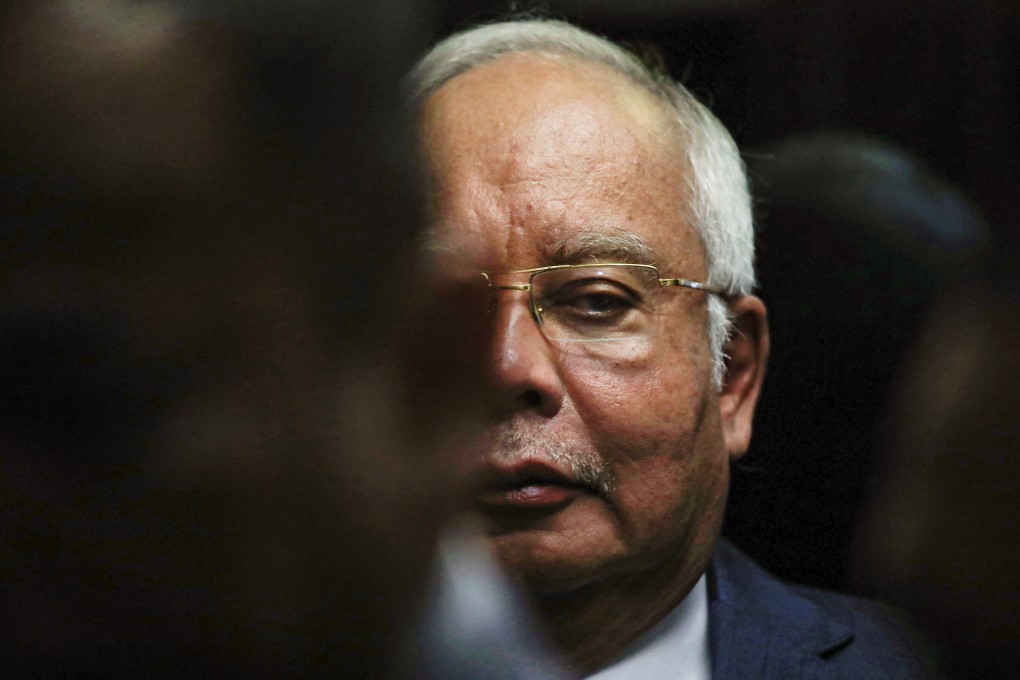As Malaysia begins ‘total lockdown’, disgraced Najib rises as complainer-in-chief
- Prime Minister Muhyiddin Yassin is under pressure not just from the country’s opposition, but also from forces within his own party such as Najib
- Analysts say the former premier, who is appealing a jail term for corruption, is looking to brighten his political prospects – but Muhyiddin still holds the cards

The government announced the measure – which shuts most businesses and bans dining in as well as social gatherings during the lockdown period – amid signs that the health care system was close to being overwhelmed.
Opposition leaders such as Anwar Ibrahim and Lim Guan Eng have assailed Muhyiddin for the authorities’ seemingly haphazard manner of announcing fresh restrictions.
The toughest jabs, however, have come from Najib, whose United Malays National Organisation (Umno) is a key cog of the ruling administration.
In his latest salvo on Monday, he suggested the government was taking the side of multinational companies as it allowed certain manufacturing sectors to continue operating during the 14-day lockdown. He claimed the government was allowing this on the basis that it was in the interest of keeping global economic supply chains intact.